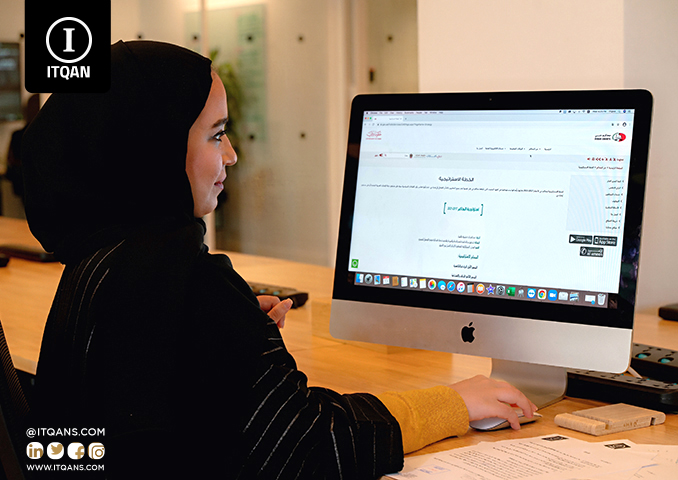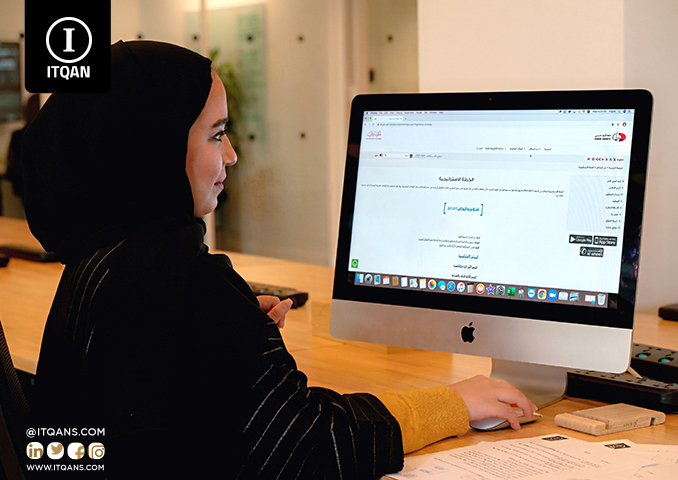Opening a company in Dubai requires following legal and administrative procedures. The appropriate legal structure must be determined and registered with the relevant government bodies. It also requires obtaining the necessary licenses and permits and preparing the required documents. It may be best to engage a local legal advisor to ensure compliance with legal requirements and facilitate the process of setting up a company in Dubai.
One of the steps to open a company in Dubai. First, you must determine the appropriate type of company and define the desired business activity. Then, you must apply to the Dubai Department of Economic Development to obtain licenses and authenticate the required documents. After that, the company is registered, the business address is chosen, and business procedures begin.
Legal procedures necessary to open a company in Dubai
To open a company in Dubai, you must choose the type of company, specify its name, submit the documents required for licensing from the Department of Economic Development, then register it with the Dubai Chamber of Commerce and Industry and open a bank account for the company.
An overview of the legal procedures necessary to open a company in Dubai:
- Choosing the type of company:
You must first decide what type of company you want to establish, whether it is a limited liability company (LLC), a sole proprietorship, or a public or private joint-stock company. This choice depends on the company’s business needs and the desired organizational structure. - Determine the business activity:
The type of business that the company will undertake must be determined, according to the business activity classifications and licenses specified in Dubai. - Choosing a company name:
You must choose a unique name for the company and ensure that it does not conflict with the names of other companies that already exist. - Preparing the necessary documents:
This requires preparing the necessary legal documents such as the necessary approvals and agreements, depending on the chosen company type and local regulations. - Submitting a registration application:
After preparing the documents, an application to register the company must be submitted to the relevant government agencies, which include the Department of Economic Development (DED) in Dubai. - Obtaining licenses and permits:
After submitting the application, it will be reviewed and the necessary licenses and permits will be issued to start working for the company. - Company Incorporation:
After receiving licenses and permits, the company must be established under the appropriate legal documents and notarized with the local legal authorities. - Tax registration:
The company must register with local tax authorities, such as the Dubai Tax Authority, and comply with applicable tax legislation. - Visas and work permits:
The necessary work permits and visas must be obtained for foreign employees and investors who will work in the company. - <strong>Open a bank account:
A commercial bank account must be opened in the name of the company to manage its financial transactions. These procedures take some time and effort, and their details can vary depending on the type of company and local legislation in Dubai. Therefore, it is recommended to cooperate with a competent local legal advisor to ensure full compliance with legal procedures and properly facilitate the process of opening a company in Dubai.
Topics that may interest you: Conditions for opening a company in the Jebel Ali region
Licenses and permits to open a company in Dubai
A company in Dubai must obtain the necessary licenses and permits. The type and legal nature of licenses and permits depends on the company’s activity and the location in which it will be located.
Some common licenses and permits you may need to open a company in Dubai:
- Company License: The company must be registered with the relevant regulatory authorities such as the Department of Economic Development (DED) or the General Authority for Free Zones and Commercial Zones (DAFZA), depending on the location in which you wish to establish the company.
- Activity license: The company’s activity must be determined and the appropriate license must be obtained for it. Common activities in Dubai can include professional services, general trade, industrial production, real estate, hospitality, retail, and others.
- Real estate brokerage permit: If you want to establish a real estate company, you may need a real estate brokerage permit from the Dubai Real Estate Registration Department.
- Building and construction permits: If you plan to engage in building and construction projects, you may need special permits from relevant authorities such as Dubai Municipality and Dubai Electricity and Water Regulatory Authority (DEWA).
These are just general examples of the licenses and permits required, and requirements vary based on the type of company and its activity. It is recommended to contact the Dubai Department of Economic Development or the relevant authority to obtain more detailed information about the specific licenses and permits for your proposed company.
Open a company in Dubai online
A company in Dubai online is an innovative and convenient option for many who are looking for an easy and convenient way to start a business. This process can save time and effort and speed up the procedures required to establish a traditional company. Through available digital services, individuals can submit applications online, provide the required documents, and obtain the necessary licenses and permits without the need to appear in person. This approach embodies the digital transformation that the United Arab Emirates is witnessing, and contributes to strengthening the digital business environment and enhancing innovation and leadership in the local and global market.
Read also: Establishing a company in the Free Zone
Commercial activities to open a commercial company in Dubai
A business company can be opened in Dubai for a wide range of business activities, and these activities include the following:
- Retail trade: selling various products directly to consumers, whether these products are consumer goods or luxury goods.
- Wholesale trade: Selling products in bulk to merchants and other businesses rather than to final consumers.
- Professional services: such as engineering, legal, medical, management consulting, etc.
- Hospitality and tourism: opening hotels, restaurants, travel agencies, and other tourism services.
- Technology and Communications: Providing technical services such as software development, hosting services, communications, and others.
- Real estate: working in the field of real estate brokerage, real estate development, or real estate property management.
- Manufacturing: The production of various products starting from raw materials, whether traditional or technologically advanced.
- Education and Training: Providing educational and training services in various fields such as higher education, vocational training, and language education.
These are just a few examples of the businesses you can open a company in Dubai. You can choose the activity that suits your experience and interests, and that reflects the demand in the local and global market. Before making any decision, you should conduct a market study and assess the demand and competition in the sector you wish to operate in.

Opening a company in the Emirates
Topics that may interest you: Steps to establishing a business within the country
Costs of opening a company in Dubai
The costs of opening a company in Dubai may vary based on several factors, including the type of company, planned scope of business, and services required. However, here is a general estimate of some of the costs that may be associated with opening a company in Dubai:
- Registration and licensing costs:
These costs include registration fees with the Dubai Department of Economic Development, business license fees, and company registration fees. - Legal and accounting consulting costs:
You may need to consult an attorney or accountant to help you understand local laws and regulations and determine the best legal and financial structure for your company. - Business Address Costs:
There may be costs to obtaining an approved business address for your company, whether it is an executive office or office space. - Visa and work costs:
If you intend to bring in foreign employees or investors, you may need to pay fees for work and residency visas. - Document preparation costs:
There may be costs to prepare legal documents required to establish the company, such as contracts and agreements. - Costs of professional certificates:
In some cases, you may need accredited professional certificates to establish some types of companies, and this may involve additional costs.
These are just general examples of the costs you may face when opening a business in Dubai, and you should always check the actual prices and costs of the services you need from reliable sources before making any decisions.
Types of companies that can be established in Dubai
In Dubai there is a wide range of different types of companies that can be established. Some common types of companies in Dubai include:
- Sole Proprietorship: Also known as a sole trader, a company is owned and operated by one person in which the sole shareholder is responsible for all the actions and liabilities of the company.
- Limited Liability Company (LLC): LLC is the most common type of company in Dubai, as it consists of partners who put up a specific capital for the company and enjoy limited liability for debts and obligations. There must be an Emirati citizen partner who owns a share of at least 51% of the company’s capital.
- Public Joint Stock Company: It is a company that is owned and operated by a number of shareholders, and has legal rights and responsibilities independent of its members. There must also be an Emirati citizen partner who owns a share of no less than 51% of the company’s capital.
- Free Zone Company: There are multiple free zones in Dubai, which provide opportunities to establish companies with laws and legislation different from the laws in force in the rest of the emirate. These companies also benefit from advantages such as full ownership by foreigners and easy customs and administrative facilities.
- Company in the Special Economic Zone: These companies allow foreigners to establish and operate certain companies in special economic zones such as the Dubai Technology and Innovation Zone or the Dubai International Financial District.
Most important frequently asked questions:-
What are the main steps to open a company in Dubai?
The steps include choosing the company type, submitting the required documents, choosing the company name, and registering with the competent authorities.
What types of companies can be opened in Dubai?
Various companies such as local companies, individuals, and joint stock companies can be opened in Dubai.
Is there a minimum capital required to open a company in Dubai?
Capital requirements depend on the type of company and planned activity, and it is best to check local regulations.
What are the procedures to determine the type of company?
The type of company should be determined based on the nature of the activity and expectations for future expansion.
Can I open a company with full ownership?
Yes, foreign individuals can open a company with full ownership in some areas according to government laws.
Can I move my company office to Dubai from another location?
Yes, the company office can be moved to Dubai, but this requires legal procedures and permits.
How long does it take to establish a company in Dubai?
The duration of establishing a company can vary depending on the type of company and administrative procedures, and is usually between two weeks to two months.

















